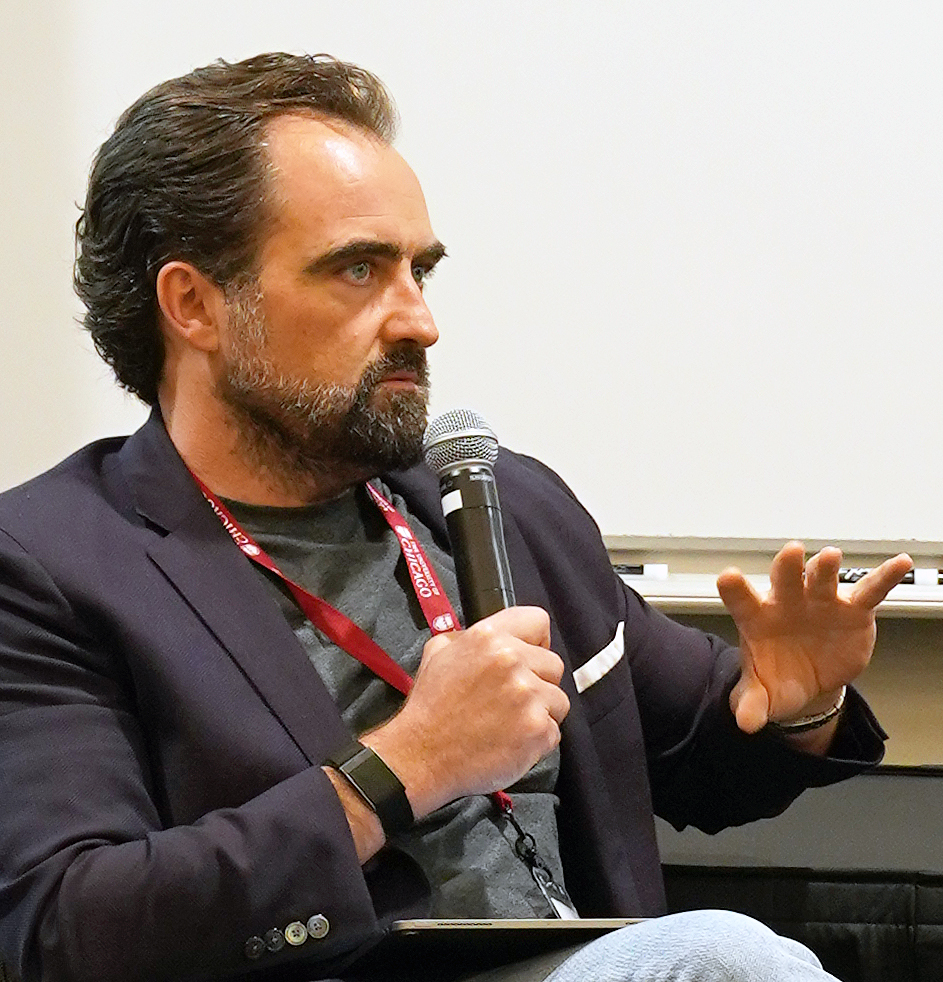The path to top executive positions has changed dramatically in the last ten years. Companies now look for specialized skills alongside leadership ability when hiring executives, a development that reflects both the changing nature of these high-level jobs and new approaches to structuring leadership teams.
This evolution occurs as Fortune 500 leadership teams have expanded by 23 percent between 2018 and 2023, with required skills for traditional C-suite roles increasing by over 20 percent. Today’s executives face an array of new challenges—from AI integration to sustainability governance—that require specific forms of expertise that neither conventional management programs nor operational experience alone typically develop.
As an example, consider the modern CFO, who now drives digital transformation alongside financial strategy and risk management. Or the Chief AI Officer (CAIO), a role that barely existed five years ago but is now critical for companies incorporating artificial intelligence. Even traditional roles like the CHRO (human resources) have transformed and today encompass everything from expertise in data-driven talent strategy to creating scalable technology ecosystems.
This is all to say that a new set of dimensions has entered the equation for executives eyeing the C-suite: Not only must they demonstrate foundational expertise core to the role—say, a CFO’s fluency in accounting, treasury, or forecasting—but also the agility to take on emerging areas like cybersecurity and the leadership acumen to collaborate across functions, communicate with other CXOs, and engage with the board. Increasingly, the answer lies in targeted executive education—programs that bridge the gap between leadership potential and role-ready proficiency while signaling an ambition and commitment to reaching and succeeding in the C-suite.
The New Complexity of C-Suite Roles
The contemporary C-suite sits at the intersection of advancing technologies, a globalized marketplace, and shifting stakeholder expectations. Innovations such as artificial intelligence, big data analytics, and the imperative for digital transformation have spilled out of the IT department and become core strategic considerations that permeate every layer of a business and every functional area within the C-suite.
In recent years, the rise of transformative technologies has prompted organizations to reshape the C-suite and create new roles to centralize management, drive innovation, and minimize risk. Titles like Chief Data Officer (CDO) and Chief AI Officer have emerged to lead enterprise-wide strategies in areas such as data governance, machine learning, and digital infrastructure. Meanwhile, long-standing roles like the Chief Information Security Officer (CISO) have grown in importance as companies confront expanding cyber threats. While not solely tied to tech, positions like Chief Sustainability Officer (CSO) have also gained traction as companies respond to investor pressure and regulatory demands for resilience and transparency.
Simultaneously, traditional C-suite roles like Chief Financial Officer (CFO), Chief Marketing Officer (CMO), and Chief Human Resources Officer (CHRO) are expanding in scope and today require a broader and more specialized set of skills than ever before.
Taken together, these changes have introduced a critical skills divide: general leadership abilities alone no longer suffice where specialized C-suite readiness is needed. Success now hinges on executives who can integrate technical proficiency with enterprise-wide perspective and role-specific knowledge. It’s a blend of capabilities that demands deliberate preparation well before stepping into these roles.
Beyond the Traditional Trajectory
The path to the C-suite once followed a predictable pattern: steady advance within a single department like finance or marketing. Today, as this model breaks down, modern executive roles call for not just depth in one area, but a diverse skill set that spans multiple functions. Traditional career paths that create specialists often fail to develop the broad perspective and collaborative abilities now essential at the executive level. Even established leadership programs designed to address these gaps are struggling to adapt quickly enough to the evolving demands of the C-suite.
Today’s rapid turnover of technology comes with a further implication as well. More and more, the knowledge and skills that propel an executive to their current level are outdated by the time they arrive. The challenge of “keeping up with new technology” is consistently identified as a top personal hurdle for C-suite executives. More than ever, continuous professional development and upskilling have become essential requirements for C-suite survival and effectiveness.
Recognizing this need, specialized executive education programs have emerged as new pathways for emerging senior leaders. These programs—designed to tackle the specific needs of chief officer roles—focus on developing the practical skills and business acumen that apply directly to the challenges and opportunities within specific functions.
These targeted programs accelerate learning through focused curricula that allow executives to immediately apply new concepts within their organizations. Beyond content alone, they create valuable connections with both fellow executives facing similar challenges and faculty who blend academic research with practical industry experience. This combination of relevant skills and expanded professional networks provides a powerful foundation for C-suite success.
The Booth School of Business C-Suite Program Advantage
Building upon the world-renowned foundation of the University of Chicago Booth School of Business—consistently ranked among the top business schools globally—UChicago Booth Executive Education offers a suite of specialized CXO Programs designed for advanced leadership development among both current and aspiring C-suite executives. Completed in less than one year through a flexible hybrid format—with just one on-campus session and the remainder online—these programs deliver innovative leadership strategies and practical business insights backed by Booth’s pioneering research and distinguished faculty. Participants can immediately implement these frameworks to drive organizational performance and maximize financial results while also benefiting from the opportunity to build relationships with a global network of peers. Through the UChicago learning environment, students engage with sitting and emerging leaders across industries and also gain access to one of the most respected educational ecosystems in the world.
The portfolio covers essential areas for companies hoping to thrive in today’s changing business landscape: the Chief AI Officer Program, the Chief Financial Officer Program, the Chief Human Resources Officer Program, the Chief Revenue Officer Program, and the Global CEO Program. In each program, participants engage with cutting-edge research and real-world case studies while engaging in discussions with leading faculty and industry veterans.
The CHRO Program, for instance, doesn’t just teach HR theory—it shows leaders how to use data tools for hiring, create better workforce plans for younger employees, and make stronger contributions in board meetings. HR leaders who learn these skills can help keep employees from leaving and create better plans for how people will work in the future, which can help advance both their own careers and broader business outcomes.
Similarly, the CRO Program helps revenue leaders push past growth barriers by getting their sales, marketing, and customer teams working together with shared goals. The program shows them how to set better prices and increase profits while preparing them to lead revenue efforts at large companies.
For professionals looking to rise to the C-suite—or for current senior leaders aiming to deepen their impact—UChicago Booth’s CXO Programs provide practical preparation for what’s next. These programs help leaders build the people, processes, and strategies their organizations need to deliver results while driving sustainable growth.

CXO Programs at Chicago Booth
Advanced leadership development and strategic insights for senior leaders.
Learn more about our CXO programs


